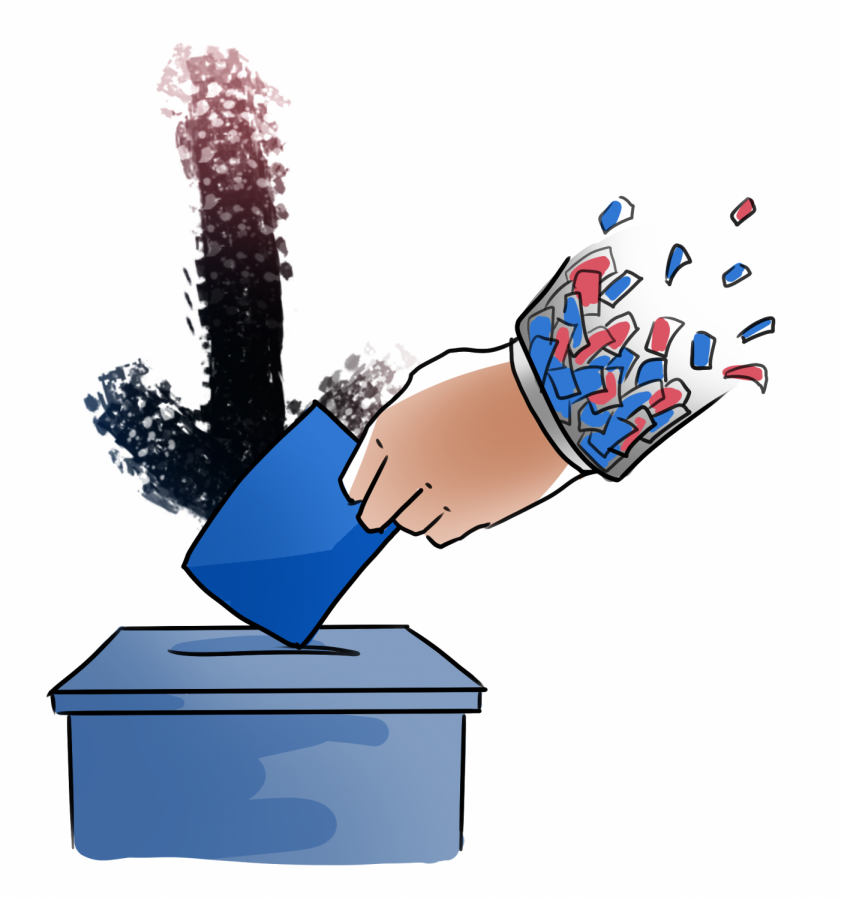The Electoral College is a unique and essential feature of American democracy
For the past 200 years, the Electoral College has preserved American democracy–it must not be eliminated.
December 16, 2020
“We the people of the United States”: a powerful message which has reverberated throughout the world serves as the foundation for the first democracy of the modern age. The Constitution is a living document, incorporating changes in laws and practices, yet through this, the government’s framework has remained constant. However, people have recently advocated for the abolishment of the Electoral College, a sacred political institution that the framers spent months perfecting.
The Democratic party has stood at the forefront of this movement, particularly after the 2016 election in which Donald Trump won the presidency but lost the popular vote. Having occurred for the fifth time in American history, this raises the question of whether the Electoral College ensures a more perfect union, or if it was a mistake on the part of the founding fathers.
The Electoral college is a system in which each state is allocated a certain number of electoral votes, based on their number of congresspeople and senators, and the candidate who crosses the threshold of 270 votes wins. Just over a month after the election, electoral delegates convene and place their votes. Delegates usually cast their votes based on the results of their state elections, though in the atypical case of “faithless electors”, they may vote against their constituency’s choice.
Many question the necessity of this superfluous extra step, however, this system allows for the states to control a majority of the election process. Not only does this give more power to the states, but it reduces the chances of tampering by the federal government. Centralizing all electoral power within the national government could allow an incumbent president to hijack the election process and fraudulently grant themselves a second term. Even if a president manages to circumvent state power and illegally influence results, electoral delegates can fulfill the purpose the founders intended for them by voting against their state’s popular vote.
By dividing the general election into multiple state races, any instances of fraud can be swiftly identified and eliminated through local recounts. Even so, for voter fraud to have a significant impact on the outcome of the election, the electoral race must have a close enough margin in which one or two states could flip the outcome. Candidates would most likely try to illegally influence swing states whose elections are decided by a few votes, however, all eyes would be placed on these races, making it difficult to get away with meddling. Since 1979, there have only been 1,302 proven instances of voter fraud in the U.S., but without the protections of the Electoral College, cases would skyrocket.
Government teacher William Vicari said, “it was created to ensure that smaller states were given a voice.” The Electoral College encourages candidates to campaign in rural areas as opposed to focusing on urban population centers. Different regions in the country have varying political needs, ranging from infrastructure to agricultural policies. The Electoral College forces a president to meet the needs of the entire nation.
The central argument against the system remains: the popular vote and electoral vote do not always coincide. Due to this phenomenon, Democratic candidates tend to be at a disadvantage compared to their Republican opponents. Vicari said, “Democratic candidates need to win the popular vote by 5 or 6 million votes in order to win whereas the republican candidate only has to lose by 2 or 3 million votes and then they’re going to have a chance to win.”
Nonetheless, completely overhauling the Electoral College is not the solution. Vicari said, “a good alternative would be to keep the Electoral College but to eliminate the winner-take-all features and go by the district model that Nebraska and Maine use.” This would allow states to apportion their electoral votes based on their state’s popular votes, evening each citizen’s influence. Freshman Lucas Roca said, “say one state votes 53% blue and 47% red. Since blue had more votes, they would get 100% of the electoral points, which is not fair.”
Although the Electoral College remains an imperfect system, it still possesses qualities that preserve the original wishes of the founders: to allow the people to choose their leader. The system reduces voter fraud, prevents tyrannical presidents and fairly balances power between small and large states. The Electoral College is a uniquely American system that has prevented the country from slipping into despotism. Eliminating this 200-year-old system now would be unwise. Instead, we must amend it, just as we have our constitution, to continue progressing our country.



